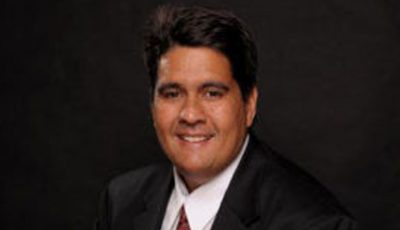Secret societies
The elite in the Philippines were the Ilustrados, Spanish for “erudite” and “learned.” They were educated Filipinos (since ’64, Filipino became the language and Pilipino refers to the people), Jose Rizal numbering among them.
For the Spaniards earlier, their Ilustrado position derived from their proximity to the Spanish throne. Those called “Filipinos” were not the indigenes of the archipelago but the subjects of Señor Felipe de la España; the indigenes who wore the title remained indios, with the telling small letter “i.” The indigenes took the name as a nationalist title after Bonifacio, later universally across newly independent Philippines.
Before then, indigene forces gave Spain the run for their money through the dynamic of an illustrious society in the Kataas-taasang Kagalang-galangang Katipunan ng mga Anak ng Bayan (KKK). Marcos tried to replace the word “Pilipino” with an illustrious word, Maharlika (mahal na likha), but it did not hold. To this day, the country and the people are known as subjects del Señor Felipe de la España!
The Illuminati (plural of illuminatus, “enlightened”) was an Enlightenment secret society started in Bavaria whose goals was to oppose the obscurantist leftover of superstitious beliefs that influenced public life and controlled state power, including the established Christian churches. Thirty members of a Bohemian hunting secret society were with Scalia at the event where he died in his sleep; the rich European members were ideologically sympathetic to the Justice.
Freemasonry and other secret societies, joined the Illuminati, outlawed by the reigning Monarchs with the encouragement and blessings of the Roman Catholic Church, vilified by conservative critics as the root cause of the French Revolution.
Thus, secret societies were the form of innovative organizations outside established networks, and they flourished in the last two centuries as the participatory ethos of democracy took hold of the political process.
In the balancing drive of the yin-yang, the nature of societies were not originally secret but more clannish in the patrilineal tradition since Kongzi (Confucius) articulated the value of the family as a model for social and political order. The royals adopted the Confucian teachings as normative and for more than 2,000 years, the model offered social stability as it was ethical and prescriptive. Conflict came in the turnover of dynasties.
Favoring of the male of the specie, the Chinese female is married to the male’s family, and though she retains the use of her family name, all offspring follow the male’s clan name. The Chinese surname, like the rest of Sinosphere, is a status symbol, once distinguished whether it was from a clan or deriving from a lineage, thereby, more important to the elitist pretentions more than the value of its identification function.
Wang proliferates in China, Kim names a fourth of Korea, North and South. What’s in a name? A lot. The West is addicted to time; the East honors name.
China had Tong, their secret societies. The Tongmenghui, aka the “Chinese United League, United League, Chinese Revolutionary Alliance, Chinese Alliance and United Allegiance Society” merger, stayed underground to resists the late Qing dynasty, founded by the renowned nationalist Sun Yat-sen in Tokyo 1905. This unification effort of revolutionary groups set the pattern for Chinese Associations in many Chinatowns.
The illustrado, illuminati, and the Tongmenghui were secret societies spawned when common folks resisted a ruling elite, providing identification and strength of motivation for many to pursue their personal and social interests.
In my late teen world, I joined the Jacques DeMolay fraternity of the Freemasons, and then moved to the United States where I ran into a racist DeMolay chapter in Ohio. I was flabbergasted to discover that what was a liberal group among friends in Manila was narrow-minded in Ohio. That’s when I realized that the nature of secret societies is to perpetuate its native prejudices and the freemasons of America reflected the lily-white prejudice of the place and people.
There is something comforting about the immediate bonding that results when fellow members in a secret society discover each other in unfamiliar settings. Instantly, a stranger becomes “Brod” or “Sis,” and that’s just at the gate.
The camaraderie also lends itself to an easy network of corrupt practices (300,000 in China convicted of corruption lately), as those of the same in-group often are defensive of each other’s interest for the general protection of all. There is a vague dividing line in the conduct of public office between private and public interest, a disruptive influence.
Secret societies spawn small groups that are the active ingredients of participatory democracy, but its secretive nature runs counter to the openness that characterizes the need for widespread involvement, a paradox that bedevils existing secret societies.



























